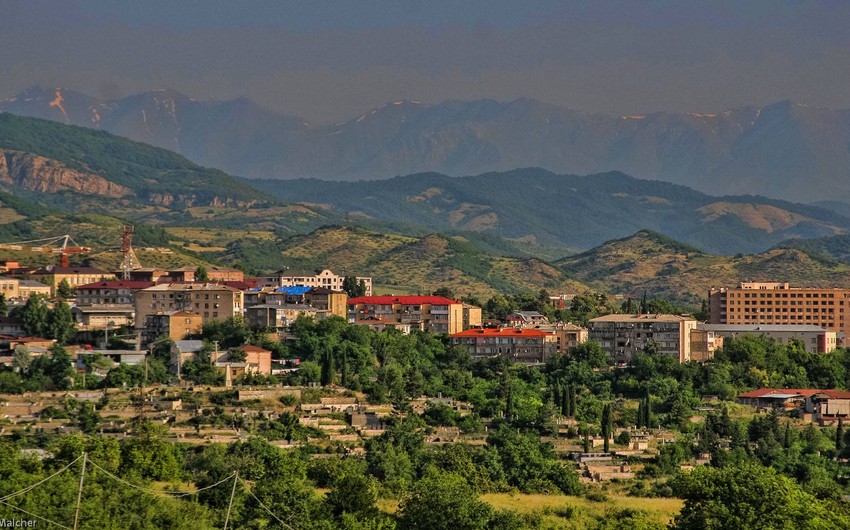Article by Azerbaijan's Consul General in Los Angeles, Nasimi Aghayev, titled "How the French Ambassador watered-down UNSC documents on Armenia's invasion of Kalbajar" was published at Medium online platform on November 24.
Aghayev mentions that "On November 25, 2020, Armenia handed the Kalbajar district back to Azerbaijan, in line with the , which also ended the 44-day-war in Karabakh. Thus a 27-year-long illegal occupation of Kalbajar came to an end. Tens of thousands of forcibly displaced Azerbaijani residents of Kalbajar will finally be able to return home."
The Consul General notes that "The invasion and total ethnic cleansing of Kalbajar by Armenia in early April 1993 was one of the most crucial moments and darkest chapters in the Armenia-Azerbaijan conflict." An investigation by Human Rights Watch said: "The only outlet from Kalbajar to Azerbaijan proper was over the Murov mountains to the north through the Omar pass, a treacherous journey in winter…60,000 people were forced to flee their homes... many were taken hostage or killed by indiscriminate fire."
Aghayev further mentions that "These facts are confirmed by I unearthed and shared recently on social media that went viral. It's a video of the California-born Armenian terrorist and his accomplices in Kalbajar in April 1993, who giggle and perform celebratory gunfire, as they give the besieged Azerbaijani civilians ten hours to leave."
Immediately after Kalbajar's invasion, the U.N. Security Council (UNSC) passed a statement on April 6, 1993, condemning the invasion and demanding the withdrawal of occupying forces. Referring to recently declassified U.S. State Department cables that were published by Clinton Presidential Library on the Armenia-Azerbaijan conflict, Nasimi Aghayev notes that "From the cables, it becomes clear that at the behest of the French U.N. Ambassador Jean-Bernard Mérimée, the UNSC Statement on Kalbajar's invasion was substantially watered down. Opposing the language presented by U.S. Ambassador Madeleine Albright and other members of the U.N. Security Council and in an apparent attempt to exculpate Armenia for invasion, Amb. Mérimée insisted on the inclusion of the wording "local Armenian forces" as invaders of Kalbajar... French insistence worked, and the UNSC passed the suggested, watered-down language. On April 30, 1993, the UNSC passed a )— the first on the conflict — using the same language. Due to Amb. Mérimée's efforts, the Resolution 822 became the weakest of all four UNSC resolutions passed on the conflict. Three subsequent resolutions () did not use the wording "local Armenian forces," included the language "Nagorny-Karabakh region of the Azerbaijani Republic," as well as expressed clear support for Azerbaijan's territorial integrity and demanded the immediate withdrawal of occupying forces from all occupied areas of Azerbaijan."
Aghayev further notes that "As Amb. Mérimée was watering down UNSC documents in favor of Armenia, an ethnic Armenian — Benon Sevan — was U.N. Assistant Secretary-General with particular responsibility for the Security Council. together with Amb. Mérimée ."
"After all, Amb. Mérimée's strong pro-Armenian bias was also in line with diplomacy pursued by France — a country with one of the largest Armenian diasporas (around 500,000) in the world," so Aghayev. "Because of Armenian lobby's potential influence over French diplomacy, in 1997 in the OSCE's Minsk Group — the main international body dealing with the conflict. To establish some balance in the Group, Azerbaijan insisted on and achieved the United States' inclusion as a co-chair," the Consul General writes.
Highlighting the French Senate resolution recommending the recognition of the so-called "Nagorno Karabakh Republic" - a puppet regime of Armenia -, Aghayev emphasizes that "such recognition would not only violate the international law and the very foundations of the international legal system France helped to build after the WWII, it would also contradict France's status as in the Armenia-Azerbaijan conflict."
Despite many efforts by the Armenian lobby and their allies, they cannot change an elementary fact that President Macron and before him enunciated: Nagorno-Karabakh and seven adjacent districts are an integral part of the Republic of Azerbaijan!
"Hopefully, Armenia and its diaspora groups will gradually realize that the only road to peace and prosperity for Armenia and its future generations passes through good neighborly relations with Azerbaijan, not through the occupation of neighbor's lands, driven by maximalist nationalism," concludes Aghayev.


 https://static.report.az/photo/d80efae5-cfc4-3682-878d-b4eba6b1b143.jfif
https://static.report.az/photo/d80efae5-cfc4-3682-878d-b4eba6b1b143.jfif

